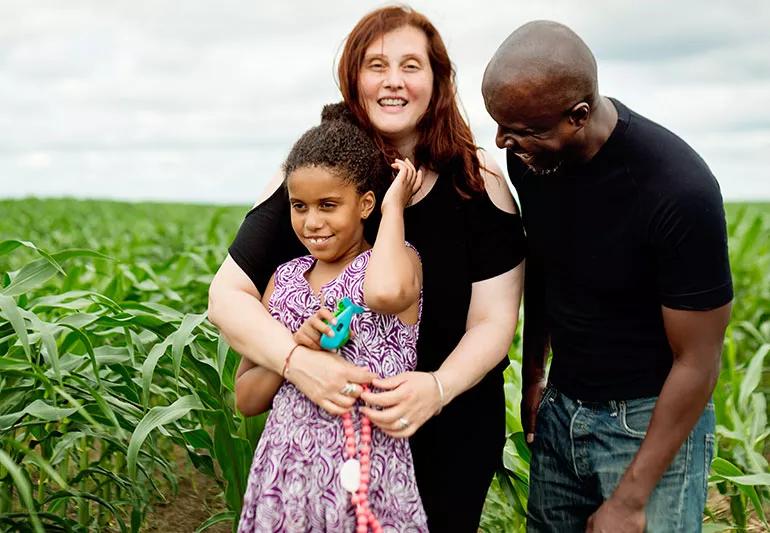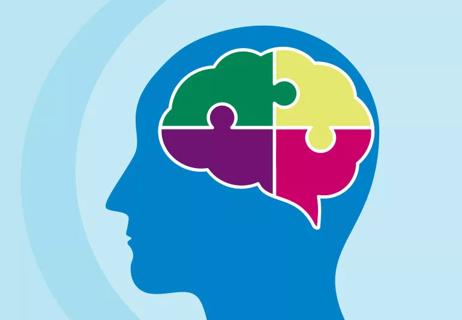Advertisement
Here’s what parents should look out for in their kids

According to most recent estimates from the Centers for Disease Control and Prevention (CDC), the prevalence of autism spectrum disorder (ASD) is 1 in every 36 8-year-old children.
Advertisement
Cleveland Clinic is a non-profit academic medical center. Advertising on our site helps support our mission. We do not endorse non-Cleveland Clinic products or services. Policy
The signs and symptoms of autism spectrum disorder differ from person to person. “Autism spectrum disorder is a lifelong neurodevelopmental disorder that can be characterized by social challenges or repetitive behavior,” says Chiara Graver, BCBA, COBA, a behavior analyst with the Center for Autism at Cleveland Clinic. “Or maybe the way you communicate, learn or interact is different.”
You might be surprised to learn that signs and symptoms can often begin to appear early in a child’s life. “Parents and physicians typically start to notice signs before age 3,” Graver says. “A good assessment can probably diagnose a child as early as a year-and-a-half old.” Kids start going to preschool around age 3, she adds, so that also might be why these signs are noticed more.
Diagnosing autism spectrum disorder isn’t necessarily something that happens by crossing items off a checklist. “It’s not like we have 10 check boxes where we say yes, yes, yes, yes, yes — autism spectrum disorder,” Graver says. “There are a lot of symptoms that overlap with other medical diagnoses.” However, here are some common signs that you might see:
You might notice that your child isn’t using spoken language (or another method of communication) when you’re interacting. “When a child is really little, they don’t always use words to talk,” Graver notes. “Instead, they might bring something to you and ask for help. Maybe they’ll gesture or use some basic signs to communicate their needs.” If you’re not seeing these kinds of behaviors, it might be cause for concern.
Repetitive movements such as hand flapping or body rocking are commonly associated with autism spectrum disorder. “You also might notice these mannerisms when kids play,” Graver says. “However, when they do these movements all the time, that might be something to look out for.”
Graver describes this sign as a child who typically doesn’t “orient themselves” to a familiar person, like a parent or relative. “Think of it like if your mom comes in the room, calls your name and you don’t turn or acknowledge that she’s entered that space,” Graver says. “Or you don’t have that reciprocal smile with a parent, caregiver or somebody familiar to you.”
Nearly every child has intense fascinations with things. After all, how many times have you watched their favorite TV show or movie over (and over) again? But when kids have a greater interest in objects than people, that could be a sign of autism spectrum disorder. “Or maybe they’re really fixated on certain parts of those objects,” Graver says.
Parents and caregivers know their child best — meaning, they can also sense when something isn’t quite right. “Sometimes, I’ll talk to a family and ask, ‘What prompted you to go through the autism spectrum disorder diagnostic process?’ And they’ll tell me, ‘I had a gut feeling. I felt like something was different,’” Graver says.
Advertisement
That could mean they’ve noticed differences between their kids — for example, a younger sibling started talking later than their older sibling — or something else more subtle. “You should listen to that little voice inside telling you that maybe something is different and you should get it checked out,” Graver advises, “even if you can’t quite pinpoint what it is.”
In recent years, the pandemic may have complicated this picture slightly. For example, your kids might not have been around anyone but family. “Now that kids are going out and socializing more, parents may be noticing some differences between their child and other kids,” Graver notes.
This might not necessarily be because of a health condition, she adds. “Are they just playing alone because they haven’t had a playmate in two years? Or are they not interested in other people because they’re very shy and they don’t know a lot of people outside of the family?”
In general, the early developmental period for any child is critical. That’s especially true with autism spectrum disorder. “There’s a lot of resources that suggest early intervention is key in addressing some of the behaviors we might see,” Graver says.
This is also why keeping up with primary care checkups is so important. “When children are little, it feels like we have a well check every few months,” Graver says. “You might wonder why you’re having so many. Doctors seem like they’re just measuring the weight and height of kids and asking questions of parents.”
But pediatricians aren’t just checking in to see how children are growing physically. “They’re looking at developmental milestones,” Graver explains. “Are kids talking? Are they walking? Are they social?”
Depending on what pediatricians see, they might recommend a child undergo an assessment for autism spectrum disorder — or work with doctors on another skill. “Maybe they’ll say, ‘I’m not sure about autism spectrum disorder, but we definitely want to get your child into speech therapy or occupational therapy. Let’s start there and reevaluate in a month or two,’” Graver says.
Autism spectrum disorder also shares symptoms with other common health conditions. For example, if you call your child’s name and they don’t respond to you, that “could be a hearing issue or maybe something short-term, like an ear infection,” Graver says. In a case like that, maybe seeing an ENT and getting an antibiotic is a good solution.
Advertisement
Attention-deficit hyperactivity disorder (ADHD) and autism spectrum disorder also share symptoms. Graver says that in the past, psychologists wouldn’t even diagnose ADHD in someone who also had autism spectrum disorder. “With both, there are marked difficulties with communication and there may be hyper-focus,” she says. “It can be really hard to distinguish.”
At the end of the day, parents with any concerns about their child’s health should bring them up as soon as they can, Graver encourages. “It’s better to talk with your child’s pediatrician and potentially get some additional testing done to rule out — or rule in — any possible health conditions.”
To hear more about this topic, listen to the Health Essentials Podcast episode “Autism Spectrum Disorder in Kids.” New episodes of the Health Essentials Podcast publish every Wednesday.
Advertisement
Learn more about our editorial process.
Advertisement

Current research suggests 1 out of every 36 children in the U.S. has ASD — and that’s probably an undercount

For starters, autism spectrum disorder isn’t a disease

Both terms have been replaced by autism spectrum disorder (ASD)

Gender norms may lead to women and people assigned female at birth being misdiagnosed

A variety of healthy foods can help reduce inflammation and keep other conditions at bay

Some ‘flare-ups’ are temporary and expected, others can signal a need to change therapies

Our collective misremembering of events comes from a surplus of false memories

Most routine vaccines are safe for people living with multiple sclerosis — but be sure to talk with your care team about your needs

Focus on your body’s metabolic set point by eating healthy foods, making exercise a part of your routine and reducing stress

PFAS chemicals may make life easier — but they aren’t always so easy on the human body

While there’s little risk in trying this hair care treatment, there isn’t much science to back up the claims